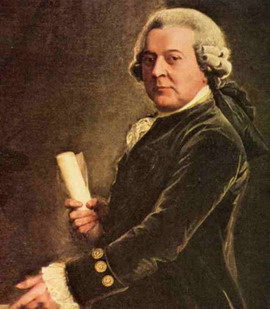29 Jul John Adams, Knowledge & The Character of Literary Men
 One of the most influential Founding Fathers of the United States was John Adams, our second president and the revolutionary delegate who was instrumental in persuading Congress to adopt the United States’ Declaration of Independence in 1776.
One of the most influential Founding Fathers of the United States was John Adams, our second president and the revolutionary delegate who was instrumental in persuading Congress to adopt the United States’ Declaration of Independence in 1776.
A Unitarian Progressive Christian, Adams was well familiar with the abuses to which Christianity was subject, yet he kept an abiding faith in religion’s positive role of uniting and morally guiding the American people. This does not mean though that Adams felt government should in any way be involved in religion. Like Jefferson, Franklin, and others, Adams was well aware how such involvement could quickly corrupt the Christian ideals of charity, virtue, and selflessness.
In the following passage, taken from a letter to Virginia State senator John Taylor, John Adams talks about the dubious character of “literary men” in America and the petty vices, jealousy, and hatred that exist in universities and other learned institutions, a cutting observation that many Americans today will humorously (or lamentably) admit still rings true.
A few words more concerning the characters of literary men. What sorts of men have worked the presses in the United States for the last thirty years? In Germany, in England, in France, in Holland, the presses, even the newspapers, have been under the direction of learned men. How has it been in America? How many presses, how many newspapers, have been directed by vagabonds, fugitives from a bailiff, a pillory, or a hangman’s noose in Europe?
You know it is one of the sublimest and profoundest discoveries of the eighteenth century that knowledge is corruption; that arts, sciences, and taste have deformed the beauty and destroyed the felicity of human nature, which appears only in perfection in the savage state—the children of nature. Yet I fear not the propagation and dissemination of knowledge. The conditions of humanity will be improved and ameliorated by its expansion and diffusion in every direction. May every human being (man, woman, and child) be as well informed as possible! After all, did you ever see a rose without a briar, a convenience without an inconvenience, a good without an evil, in this mingled world? Knowledge is applied to bad purposes as well as to good ones.
There is no necessary connection between knowledge and virtue. Simple intelligence has no association with morality. What connection is there between the mechanism of a clock or watch and the feeling of moral good and evil, right or wrong? You may read the history of all the universities, academies, monasteries of the world, and see whether learning extinguishes human passions or corrects human vices. You will find in them as many parties and factions, as much jealousy and envy, hatred and malice, revenge and intrigue, as you will in any legislative assembly or executive council, the most ignorant city or village.1
- The above passage by John Adams was edited for length and to make it easier to be read by the modern reader. [↩]
